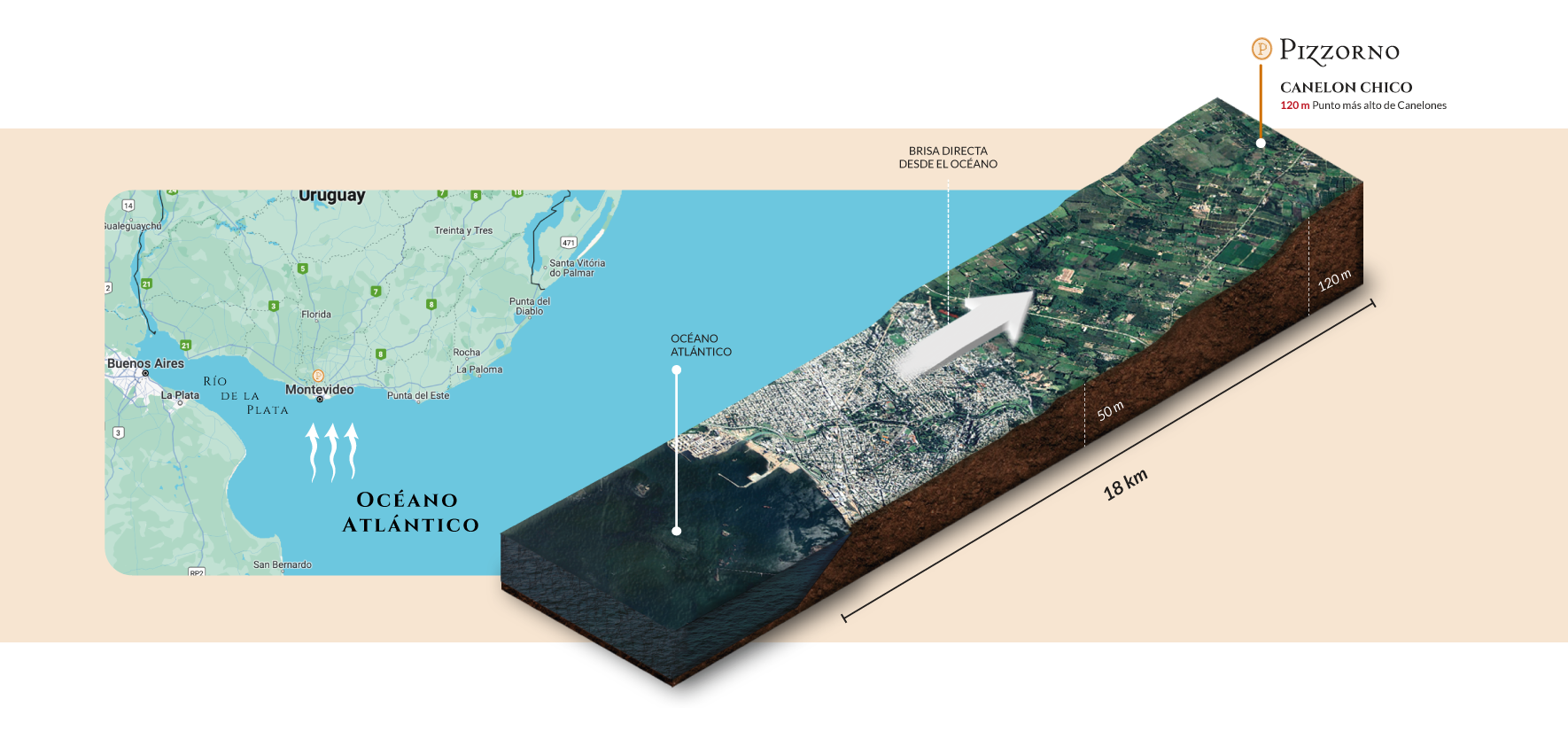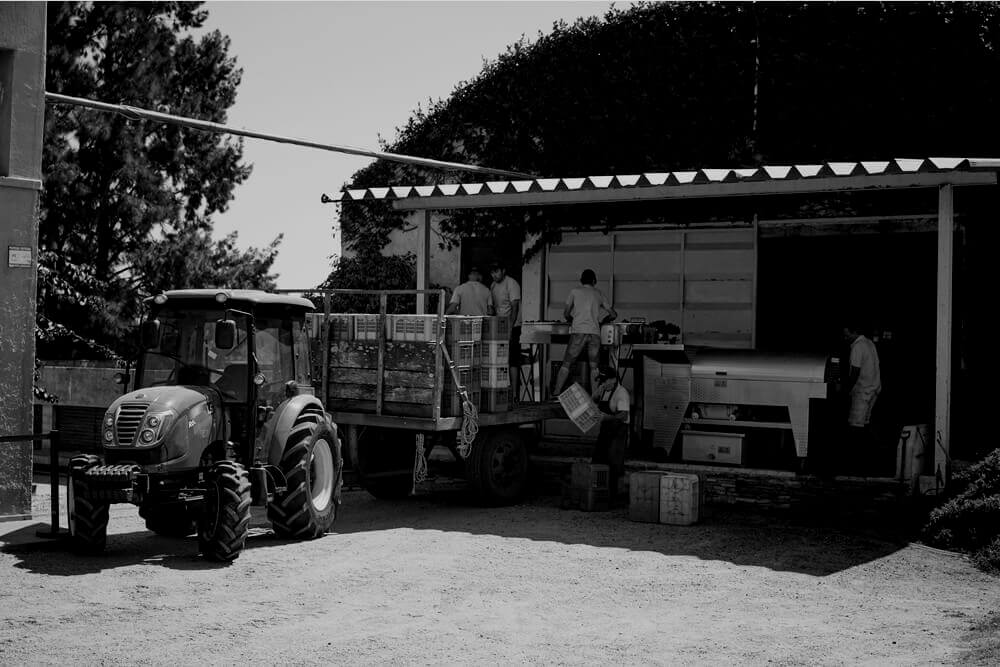Uruguay Tannat

Uruguay Tannat
Tannat is a red grape historically grown in southwestern France. Today it is one of the most important grapes in Uruguay, where it is considered the “national grape”. Tannat wines produced in Uruguay are very different in their characteristics from the wines from the Apellation d’Origine Controlée (AOC) Madiran, once they have a lighter body and less tannin.
Its clay soil and the sun balanced regime, rain, and temperatures are great for the growth of the vines, which without the need for irrigation rest on land with a slightly undulating topography. There are 190 wineries and about 7,000 hectares of vineyards in the country.
Esquema de Altitud

Uruguay’s climate has a maritime influence similar to Bordeaux’s. The light intensity is similar to Argentina’s and Chile’s, although with the refreshing influence of the oceanic winds.
The wines produced here are generally of low alcoholic content because in their morphological maturation the grapes reach between 12-12.5% of alcoholic potential, and a good natural balance between acidity and fruit. Its tannins are present soft, though.
Uruguay has won numerous international awards for its high quality, harmonious and elegant wines. The strategy of Uruguayan viticulture is quality, not quantity.
Tannat red variety was introduced in Uruguay around 1870 by Basque immigrants, later becoming the national banner strain, perfectly adapted to our soil and climate. Considered an exotic grape, its demand has been growing rapidly.

Approximately one third of Uruguay’s vineyard area is Tannat property, so it is the only producer in the world where it is cultivated in larger quantities than in its land of origin: Madiran, in the southwest of France. Tannat has great structure, body and color. It is a powerful wine, ideal to accompany meats, especially roasts.

Tannat wine, consumed in moderation, is beneficial to health. It is the variety that contains the highest levels of polyphenols that provide Resveratrol, with antioxidant effect that reduces LDL cholesterol, and oligomeric procyanidins, potent cardiovascular protectors for their vasodilating effect and that increase the oxygenation of red blood cells.

Uruguayan wineries produce smooth Tannat wines, with or without aging in oak barrels. Its complexity and solid structure allow the production of blends with other varieties such as Cabernet Sauvignon, Merlot, Cabernet Franc, Syrah, Malbec, Petit Verdot and even Viognier. Sparkling wines, liqueurs and aperitifs are also made from Tannat.





